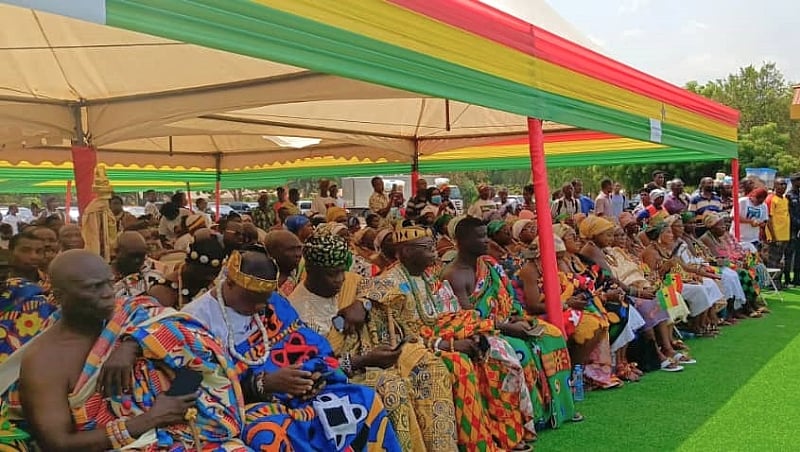President Mahama’s Volta Region Visit: A Promise of Shared Prosperity and Agricultural Development
President John Dramani Mahama embarked on a "Thank You Tour" of the Volta Region, expressing his gratitude for the overwhelming support received during the 2024 elections. His visit centered around a core promise: ensuring the Volta Region receives its fair share of national development resources. This commitment manifested particularly in the agricultural sector, with President Mahama outlining several targeted initiatives to boost the region’s agricultural output and contribute to national food security while creating local economic opportunities.
A cornerstone of this agricultural focus was the Volta Palm Initiative, a private sector endeavor already underway. President Mahama pledged government support to expand this initiative, envisioning the Volta Region becoming a hub for oil palm production and processing. This would not only generate employment but also contribute towards reducing Ghana’s reliance on imported vegetable cooking oil. Furthermore, the president highlighted plans to empower rice farmers in Afife and other areas with the necessary equipment and capital to expand their production. This would be coupled with the development of processing facilities to create a distinct "Volta brand" of rice for the domestic market, further bolstering local agriculture and reducing reliance on imported rice.
Recognizing the diverse agricultural landscape of the region, President Mahama extended his vision to other key crops. He announced plans for processing plants in Oti and parts of the Northern Volta Region known for ginger production. These plants would facilitate the production of ginger powder, ginger oil, and other value-added products for export, tapping into international markets and boosting local economies. Similarly, the Tongu area, a significant cassava producer, would benefit from a cassava processing plant, enabling the production of various cassava-based products. This multi-pronged approach underscores a commitment to diversifying agricultural production and maximizing the region’s agricultural potential.
Beyond these new initiatives, President Mahama reiterated his commitment to reviving a cocoa production program that had been initiated during his previous term but had since stalled. This program involved establishing seedling banks and providing free seedlings and extension services to encourage young people to venture into cocoa farming. By revitalizing this initiative, the goal is to significantly expand cocoa production in the Volta Region, transforming the region into a major cocoa-producing area within Ghana. This strategic approach showcases a determination to leverage existing foundations and build upon past successes to achieve sustainable agricultural growth.
President Mahama acknowledged the challenges ahead, recognizing the significant task of fulfilling these promises. However, he emphasized the importance of unity and collaboration, calling on all Ghanaians to work together, transcending divisions, to build a prosperous nation where everyone has the opportunity to thrive. He highlighted the Volta Region’s historical role as a beacon of hope, expressing confidence that with the continued support of the chiefs and people, the government would achieve great things. This call to unity underscored the belief that national development requires collective effort and a shared vision for the future.
During the durbar, traditional leaders also voiced their expectations and hopes for the region. Togbe Tepre Hodo IV, President of the Volta Region House of Chiefs, reminded President Mahama of his campaign promises, emphasizing the need to address critical infrastructure needs, particularly road improvements and the operationalization of the Ho Airport. Togbe Afede XIV, Agbogbomefia of the Asogli State, stressed the importance of upholding the principles of transparency, probity, and accountability, reminding the President and his appointees that these are the most fitting tribute to the founding fathers of the NDC. These interventions from traditional leaders highlighted the importance of accountability and the need to prioritize key infrastructure projects to unlock the region’s potential. The emphasis on transparency and accountability resonated as a crucial element in ensuring that development initiatives are implemented effectively and benefit the people of the Volta Region.


